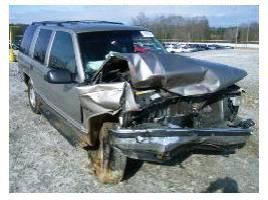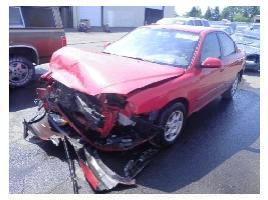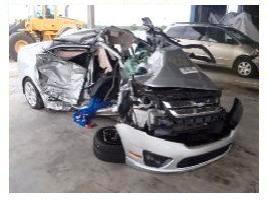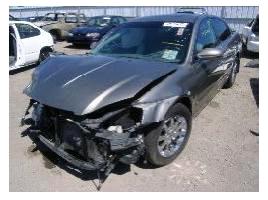Ask an Attorney a Question for FREE!
Rental Coverage
It does not matter that you have Rental Coverage or Loss of Use, they will nickel and dime you
Rental Coverage or Loss of Use main features:
- First Party Coverage
- No Fault based
- No Deductible Applies
- Limits on amount of coverage

When you get in an accident, you will need a rental car while your vehicle is getting fixed. That is the reason why you need this coverage.
This type of coverage is usually not included in either the Collision or Comprehensive coverages of the policy.
You must have rental coverage or loss of use coverage if you need to have an extra vehicle when an accident occurs.
Note that you will be entitled to this rental car regardless of who is at fault. Insurance companies will increase your premium for this coverage.
Rental coverage or loss of use is quite controversial. Usually this coverage has several limits. They start very low.
It is not surprising to see people with $20 dollars per day for a rental car. If you have not looked up how much a rental car will cost you, you probably should.
Most national rental companies start their cheapest (rice burner) vehicle at $25 per day.
When you add tax and mileage (if there are any charges on that) to the rental car costs, you will be over that amount very quickly.
Depending on the insurance company, your rental coverage limits will be either:
- Maximum daily amount and a total maximum amount. Let us say that you have $30 per day up to $900 of coverage.

This is a double limit. For example, if you have the coverage and limits just described, and you rent a vehicle for $35 per day for only two days you would owe $ 70.
Your insurance will only cover $60 and you will be responsible for $10. The limit is $30 per day and the insurance company will enforce that limit.
- Maximum daily amount for a set amount of days. $25 dollars a day for 30 days, including weekends.
Insurance policies have more limitations than the ones outlined above. Mileage and gas are usually not covered.
This means that your adjuster will deduct the mileage or gas charges from the bill, even if you are within the allowed limits.
In addition, the Rental Coverage will have limitations on when you can start your rental. Most policies start the rental immediately only if the car is not drivable.
This is always a “point” where insurance companies will try to save some money. The insurance company’s criteria on what is “drivable” are very questionable.

Oftentimes the damages are to the headlights, turn signals, rearview mirrors, glass damage, or to doors that are stuck and will not open.
The insurance company will tell you that if your car is drivable, they will not put you in a rental car until you go to a bodyshop.
Again, this is very arguable and if you are in this situation, you need to complain to the office of the insurance commissioner or department of insurance.
I think the best way to be reasonable regarding this issue is - if the damage affects the normal operation of the vehicle, then it is NOT drivable.
The question the insurance company should be asking is something like this - is the horn necessary for the normal operation of the car?
If the answer is yes, then if your horn does not work then the car is not drivable. The same applies with headlights, locks, rearview mirrors etc. If the door does not open, how can you get in to drive?
The door is necessary for the NORMAL operation of the vehicle. Therefore, if it does not open then that should be enough to fit the category of non-drivable.

I can see the argument if the damage is to the back passenger door, or even the trunk. It is hard to believe, but insurance company will fight you for $1.
I have seen insurance companies arguing the denial of rental coverage because the client drives the car during the day; and there is only damage to front headlights.
If you are in this situation, call the office of the insurance commissioner and file a report.
Click below for an explanation insurance coverages and terms:
Automobile Liability Insurance or Liability Page 1
Automobile Liability Insurance or Liability Page 2
Automobile Medical Payments or Personal Injury Protection (PIP) Page 1
Automobile Medical Payments or Personal Injury Protection (PIP) Page 2
Collision Coverage (Protection Against Loss to the Auto) Page 1
Collision Coverage (Protection Against Loss to the Auto) Page 2
Comprehensive Coverage (Protection Against Loss to the Auto) Page 1
Comprehensive Coverage (Protection Against Loss to the Auto) Page 2
Under or Uninsured Motorist Property Damage (UMPD) Page 1
Under or Uninsured Motorist Property Damage (UMPD) Page 2
Under or Uninsured Motorist Bodily Injury (UMBI)
Rental Reimbursement or Loss of Use Coverage Page 1
Rental Reimbursement or Loss of Use Coverage Page 2
Restoration Coverage
Towing and/or Road Assistance Coverage (Emergency Packages)
Insurance Clauses and Terms
Overview
Actual Cash Value or ACV
Additional Insurance Clause
Cancellation of Coverage Clause
Choice of Law Clause
Forum Selection Clause
Duty to Cooperate Clause
Duty to Report Losses Clause
Financial Responsibility Clause
Insurable Interest Concept
Interpretation of the Policy Concept
Mandatory Arbitration Clause
Mitigation of Damages Clause
Non Duplication of Benefits Clause
Proof of Loss Clause
Promissory Estoppel Concept
Reservation of Rights Concept
Reasonable and Necessary Clause
Right of Appraisal Clause
Right of Settlement Clause
Rights of Counsel Concept
Subrogation of Rights Clause Part I
Subrogation of Rights Clause Part II
Statute of Limitations Concept
Replacement Cost Value
Restoration Coverage
Transfer of Benefits Clause
|
For a Free Review of Your Case
Please Call (866) 878-2432 |


